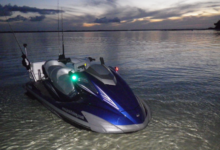Performance Tours: Elevating Student Artistry Through Travel

Performance tours offer a unique blend of artistic expression, cultural immersion, and educational enrichment, providing student musicians, dancers, and actors with opportunities to showcase their talents on prestigious stages. These specialized travel experiences go beyond traditional school trips, combining performance opportunities with workshops, cultural exploration, and professional mentorship. By performing in iconic venues and engaging with diverse audiences, students gain confidence, refine their craft, and develop a deeper appreciation for the arts. This article explores the transformative power of performance tours, their distinctive features, and the key considerations for planning impactful journeys, drawing inspiration from programs designed to elevate young artists.
The Essence of Performance Tours
Performance tours are designed to celebrate and enhance students’ artistic abilities by providing platforms to perform in renowned settings. These tours combine the thrill of live performance with educational components, such as masterclasses with industry professionals or visits to cultural landmarks. For instance, a choir might perform in a historic cathedral, while a theater group could take the stage at a celebrated festival. These experiences allow students to share their talents with new audiences, gain exposure to different artistic traditions, and grow as performers and individuals. Performance tours create lasting memories and inspire students to pursue their passions with dedication.
Amplifying Artistic Development
The core of performance tours lies in their ability to elevate students’ artistic skills through real-world experience. Performing in professional venues challenges students to refine their techniques and adapt to diverse stage environments, fostering resilience and professionalism. Workshops with accomplished artists, such as conductors, choreographers, or directors, provide personalized feedback and insights into the creative process. For example, a band might participate in a clinic with a renowned musician, while dancers could learn new techniques from a master instructor. These interactions not only enhance technical abilities but also deepen students’ understanding of their art form, encouraging them to push creative boundaries.
See also: Comprehensive Guide to Choosing Your Ideal Smartwatch
Building Confidence and Collaboration
Performance tours are powerful catalysts for personal growth, as they require students to step out of their comfort zones and perform under new conditions. The experience of presenting their work to unfamiliar audiences builds confidence and stage presence, essential qualities for any performer. Collaborative activities, such as group rehearsals or ensemble performances, strengthen teamwork and communication skills, as students work together to deliver polished presentations. These tours also foster a sense of camaraderie, as shared challenges and triumphs create lasting bonds among performers, enhancing the group’s cohesion and spirit.
Fostering Cultural and Global Awareness
Performance tours offer students the chance to immerse themselves in diverse cultural contexts, enriching their artistic perspectives. Performing in a city or country with a vibrant arts scene exposes students to unique musical, theatrical, or dance traditions. For instance, a choir touring a European city might explore its choral heritage, while a theater group could attend performances at a historic playhouse. Engaging with local artists or audiences broadens students’ understanding of global artistic practices and fosters empathy and respect for cultural diversity. This cultural immersion inspires students to incorporate new influences into their own work, enhancing their creativity.
Inspiring Career Aspirations
Performance tours can be pivotal in shaping students’ future paths by exposing them to professional environments and industry professionals. Performing in prestigious venues or participating in workshops with accomplished artists provides a glimpse into potential careers in the arts. For example, a student musician might be inspired by a conductor’s mentorship to pursue orchestral performance, while a dancer could discover a passion for choreography after a masterclass. These experiences help students envision their futures, providing motivation and clarity as they navigate their artistic and academic journeys.
Types of Performance Tours
Performance tours are tailored to various artistic disciplines, ensuring that each group’s unique talents are showcased. Music tours might focus on choral, band, or orchestral performances, with opportunities to sing in cathedrals or play at international festivals. Dance tours could include competitions or showcases, allowing students to perform contemporary, ballet, or cultural pieces on professional stages. Theater tours often feature performances at renowned playhouses or festivals, combined with acting workshops. Interdisciplinary tours blend multiple art forms, such as music and drama, while international tours provide global stages for students to share their talents and learn from other cultures.
Planning a Successful Performance Tour
Organizing a performance tour requires careful coordination to ensure it is artistically rewarding, educationally enriching, and safe. The process begins with defining clear objectives, such as enhancing performance skills or exposing students to new artistic traditions. Selecting appropriate venues and activities is crucial, as they should align with the group’s discipline and skill level. For instance, a beginner choir might perform at a local festival, while an advanced ensemble could target an international stage. Partnering with experienced tour operators is essential, as they provide curated itineraries, secure performance permits, and manage logistics like transportation, accommodations, and stage setup, allowing directors to focus on preparing students.
Incorporating Educational and Performance Elements
To maximize the tour’s impact, performance tours should balance artistic opportunities with educational experiences. Performing is the centerpiece, but complementary activities like workshops, masterclasses, or cultural tours enhance the journey. For example, a theater group might rehearse a play, attend a professional production, and participate in an acting workshop, creating a holistic learning experience. Sightseeing or visits to cultural landmarks, such as art galleries or historic theaters, provide context and inspiration for students’ performances. These elements ensure the tour is both a showcase of talent and a platform for growth, enriching students’ artistic and intellectual development.
Ensuring Safety and Support
Safety is paramount on performance tours, given the demands of travel and public performances. Tour operators must provide adequate supervision, with experienced staff and clear behavioral guidelines for students. Secure accommodations, comprehensive insurance, and access to medical resources are standard, as are contingency plans for emergencies like travel disruptions or health issues. Performance-specific safety, such as stage inspections or equipment checks, is also critical to prevent accidents. Clear communication with parents, through pre-trip briefings or real-time updates, builds trust and ensures families feel confident. Inclusivity is a priority, with accommodations for students with special needs or dietary requirements to ensure everyone can participate fully.
Preparing Students for the Experience
Preparation is key to a successful performance tour. Directors should work with students to refine their repertoire, ensuring performances are polished and stage-ready. Pre-trip rehearsals, combined with discussions about the tour’s cultural and artistic significance, build anticipation and focus. For example, studying the history of a performance venue or the cultural context of the destination can deepen students’ engagement. Tour operators often provide resources, such as rehearsal schedules or cultural guides, to support preparation. This groundwork ensures students approach the tour with confidence, ready to deliver their best performances and absorb new experiences.
Reflecting on the Journey
Post-tour reflection is essential for consolidating the tour’s artistic and educational impact. Activities like group discussions, performance critiques, or written reflections allow students to process their experiences and articulate their growth. For instance, students might discuss how a workshop improved their technique or how performing for a new audience boosted their confidence. Directors can integrate these reflections into classroom activities, such as creating a performance portfolio or presenting a tour recap to peers. These exercises reinforce the tour’s value and encourage students to apply their newfound skills and insights to future artistic endeavors.
Addressing Common Challenges
Performance tours, while rewarding, can present challenges that require proactive solutions. Cost is a significant barrier, as travel and performance fees can be substantial. Tour operators often offer fundraising support, scholarships, or budget-friendly destinations to ensure accessibility. Logistical complexities, such as securing performance venues or coordinating travel, are mitigated by experienced companies with established networks. Parental concerns about safety or the tour’s relevance can be addressed through transparent communication and pre-trip meetings that highlight artistic and educational benefits. By anticipating these challenges, tour operators ensure inclusive, well-organized experiences that meet the needs of all stakeholders.
Conclusion
Performance tours are a transformative opportunity for student artists, offering platforms to showcase their talents, refine their skills, and engage with diverse cultures. By combining performances with workshops, cultural exploration, and professional mentorship, these tours elevate artistry and inspire personal growth. From historic theaters to international festivals, the stages of performance tours create memories and skills that last a lifetime. With careful planning, a focus on safety, and a commitment to artistic excellence, educational travel companies craft journeys that empower students to shine as performers and grow as individuals, preparing them for vibrant futures in the arts and beyond.






